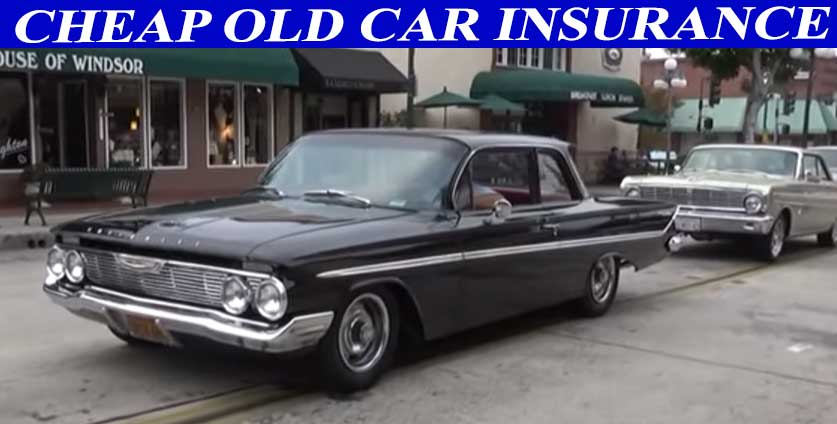Cheap Old Car Insurance
Company Trusted For Over 25+ Years*

Call us 1-855-620-9443
Company Trusted For Over 25+ Years*
Own a car that’s over ten years old? You might be paying more than necessary for coverage. Older vehicles have a lower market value and often don’t require comprehensive protection. If your vehicle is worth $10,000 or less, it’s time to rethink your strategy. Fortunately, you can find affordable insurance for older cars by using smart comparison tools. Save big by getting free quotes at GoodtoGoInsurance today.
If you have a brand-new vehicle—especially one that is financed or leased—comprehensive and collision insurance is essential and often required. These policies offer broad protection but come at a higher cost. Older vehicles, on the other hand, allow more flexibility. Limited liability coverage can save you hundreds each year.

Before selecting coverage, compare your vehicle’s value to the cost of insurance. For example, if full coverage costs $2,000 a year and your car is worth only $8,000, you’ll pay more in premiums than the car’s worth in just four years. That’s not a sound investment.
Many drivers make the mistake of keeping their original full-coverage plan long after their vehicle has depreciated. Once your loan is paid off and the car’s value drops by 50% or more, reassess your policy. High mileage, age, and wear can significantly decrease a car’s value—even after just a few years. Consider switching to a cheaper plan that aligns with your vehicle’s current market value.
Collision coverage pays for damage from incidents like backing into a pole or fender benders. But if your car is more than eight years old, it might not be worth the additional cost. In many cases, the yearly premium exceeds what you’d spend on repairs. Eliminating collision coverage could save you over $500 annually. Compare options at GoodtoGoInsurance’s quote tool to see your potential savings.
To choose the right policy, know your car’s current value. Use trusted resources like Kelley Blue Book to get an accurate figure. If your annual premium exceeds your vehicle’s value, you’re overpaying. Match your insurance to your car’s real-world worth to avoid losses in the event of a total accident.
If your used car still has a warranty, weigh the benefits of dropping it to save money. Today’s used cars are more durable than ever. With routine maintenance, many vehicles last well beyond 125,000 miles. Cutting extended warranties or unnecessary protections can save significantly.
Have a second or third vehicle that rarely leaves the garage? Consider switching it to minimum liability coverage. If it’s not essential to your lifestyle, it doesn’t need comprehensive protection. By trimming insurance on rarely driven cars, you can reallocate those savings into higher-value investments.
Increasing your deductible is one of the easiest ways to lower premiums. Just ensure you have enough savings to cover that amount in case of a claim. For cars worth under $3,000, insurers are likely to declare them total losses after accidents—making high premiums a waste. For any vehicle over ten years old, increase the deductible and scale back coverage to save more.
Low mileage discounts are a great fit for vintage or occasionally used cars. If you only drive on weekends or under a set mileage per month, you could qualify for significant discounts. If your car is stored long-term, you might even cancel your coverage temporarily. Explore pay-per-mile policies and mileage caps with pay-as-you-go insurance plans.
Seniors over 55 often enjoy special discounts. As statistically safer drivers, many insurers reward their experience with reduced rates. Shop around at GoodtoGoInsurance to unlock tailored senior savings and coverage flexibility.
Liability-only or minimal coverage is often sufficient, especially if your vehicle isn’t worth much or isn’t driven often. Dropping full coverage can save you hundreds annually.
Only if the vehicle’s value is significantly higher than the total annual cost of insurance. Otherwise, you may be overpaying.
Use sites like Kelley Blue Book or Edmunds to get an accurate estimate. Your insurer will also have valuation formulas, but it helps to have your own reference.
Yes, some providers allow for coverage suspension on stored vehicles. Alternatively, consider low-mileage policies for reduced rates.